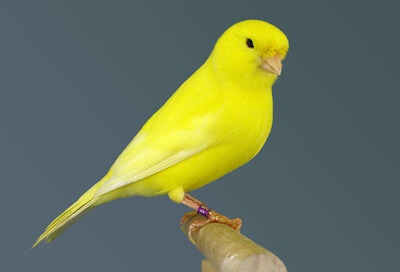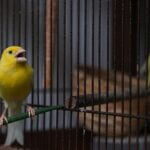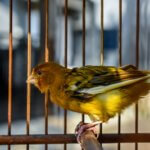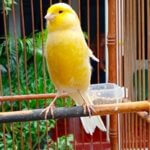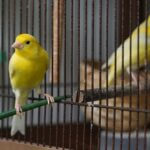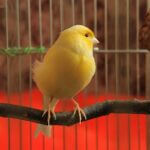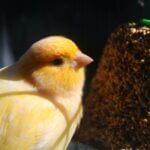Canaries aren’t as social as other birds, so they rarely show natural affection. During mating season, they bond with their mates, showing interest through feeding, singing, preening, and kissing. Outside the breeding season and without a mate, canaries are mostly reserved and aloof.
That can make it difficult to tell if your canary likes you. Even if you got a pet canary for its beautiful singing voice and plumage, it’s natural to want them to enjoy your company. At a minimum, you’ll want to know that you’re caring for it properly and making it happy.
The good news is that there are ways to tell if your canary likes you. Although expressive differently than humans and many other birds, canaries can express positive feelings toward their owners.
Does My Canary Love Me?
The easiest way to tell if a canary likes you is its expression of safety. Canaries are shy prey animals that show little affection toward other canaries, except for breeding purposes. They’re friendly but not very social, so they won’t grow jealous of your attention or show affection.
Instead, a canary likes you when it feels safe. It’ll be curious, expressive, ready to sing, happy to hop from perch to perch, and willing to put its head down to preen. It won’t immediately flutter and freak out if you reach inside its cage and may accept food from your hands.
If you spend time with your canary and own a particularly expressive bird, the signs of fondness may become less subtle. For example, the canary may respond to sounds you make with whistles, chirps, or singing, and it may learn to perch on your finger or hop to the edge of its cage to greet you.
If your canary is especially friendly and attached to you, it may preen you by gently pecking at your hair. If it’s allowed outside of its cage to explore in a room, it may choose to stay near you or land on your shoulder. Canaries that are comfortable may rub their beak against you to clean it or groom you.
If your canary isn’t this expressive, don’t be disheartened. Some canaries are friendlier than others, and some will never respond to even basic training, like perching on your finger.
That doesn’t mean it dislikes you; it shows affection differently.
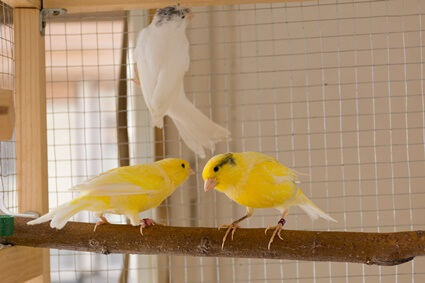
Signs A Canary Likes You
If your canary behaves in one of these ways, it enjoys your company. The key is to not rush your canary and let it warm up to you on its terms. Canaries show that they like you in the following ways:
Excited When It Sees You
Canaries are creatures of habit, so they’ll learn your routine. If your canary likes you, it’ll sing as you return home and may fly from one perch to another around its cage in excitement. When you approach it, it may bounce to the side of the cage to greet you.
The same may be true of waking up in the morning and removing the cage’s cover. An ambivalent canary will begin its routine, while one that likes you will be energetic and whistle to get your attention.
Sings A Lot
Canaries are known for singing, but they’re especially likely to sing when happy. If your canary enjoys your company, it’ll sing louder, more often, and with wider variety in its melodies.
If you find your canary sings more when you’re in the room or sings extremely often without any mate nearby, it’s likely fond of you. Canaries don’t sing when upset or scared, so it feels safe around you.
Asks for Attention
A canary that likes you will attempt to get your attention, which can be in the form of loud noises, whistling, chattering, or flapping wings.
The canary won’t be asking for you to pet it like other domesticated animals. Instead, it probably wants you to focus on it to sing, offer a toy, give it a treat, or say hello.
Talks To You
Chirping, whistling, and singing are different ways for canaries to share information, express themselves, and draw attention from other birds. However, your canary will be quiet if it’s uncomfortable or scared, as being loud attracts predators.
So, canaries that like you will be noisier in your presence. As natural show-offs, they’ll want to sing and chirp loudly to flaunt their singing voice and appearance. This is an activity they only do with people (and birds) they appreciate.
Follows You Around
When your canary feels happy, it’ll begin following you around. Inside the cage, this may include perching on the side nearest to you or pacing down a branch to the other side of the cage when you move.
If you let the canary out in a bird-safe room for exercise, it may land on you, stay near your end of the room, or only move out of arm’s reach for a short while. You’ll know your canary is fond of you if it chooses to perch on your shoulder, hand, or head and see where you take it.
Rubs Its Beak Against You
Canaries are protective of their space and don’t like being handled, which makes it an affectionate gesture if one rubs its beak against you.
According to The Wilson Bulletin, some birds rub their beak on objects to clean themselves, which could be why your canary rubs against you. While less flattering, it still displays trust, as it’s willing to place its vulnerable face close to you.
Alternatively, Behavioral Ecology and Sociology theorize that canaries use their beaks to slather preening oil (produced in their face) onto the objects of their affection.
In this way, your canary may be trying to help you remain clean, shiny, and beautiful. It’s rare for a canary to groom anyone other than a mate, indicating a deep fondness.
Preens You
Canaries that are comfortable with each other will preen their feathers together, which may include tidying up their plumage when next to you or gently rubbing or pecking at your skin to help you preen. Although most common among mated birds, it also happens between parents and offspring.
This behavior is called allopreening, and it’s a clear gesture of love and affection.
Your canary may try to groom your hair and eyelashes, which can be uncomfortable at first. However, you should avoid declining your canary’s attention, as this can harm its bond with you.
Instead, gently coax your canary to stop by moving it away from you whenever it tries to preen your hair. Offer it a treat or toy instead, as this will distract it, so it stops tidying your’ feathers.’
Mimicry
If your canary copies you, there’s a high chance it’s bonded to you. Of course, there will be a greater disconnect between a human and a canary, as the bird can’t copy everything you do, let alone exactly.
However, you may notice your canary memorizing your schedule, moving from one side of the cage to another as you pass by to complete tasks, and singing when you sing.
Likewise, when you eat, it may ask for food. It may begin puffing its feathers and settling down if you start winding down. When it’s time to play, it may become energetic and happy.
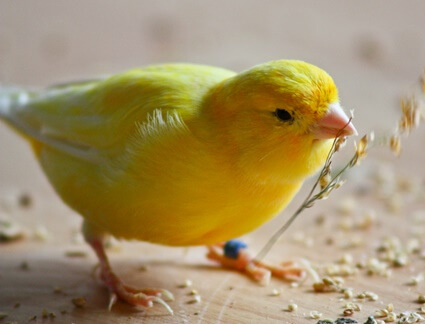
How To Get A Canary To Like You
If your canary isn’t happy to see you or fond of being in your presence, it’s natural to be disappointed.
The good news is that there are ways to get a canary to like you. Applying these tips regularly will help you form a connection with your pet canary, so it can begin showing you affection:
Proper Husbandry
A canary usually bonds with its primary caregiver. It’s only natural to appreciate the person who offers you food, a clean environment, and good company.
To improve your relationship with the canary, pay attention to its:
- Diet: A canary should be on a pellet-based diet supplemented by veggies, fruits, and seeds. Canaries should also have calcium supplements and be provided with clean drinking water.
- Cage: A canary should be placed in a large cage to hop around. Long designs are better than short ones and should be equipped with several perches.
- Environment: A canary’s environment should be free of stressors, including loud noises and other pets. Instead, canaries should be placed in a peaceful, quiet room that you visit.
- Safety: Canaries should feel safe in their environment. Don’t allow them into places where there are other pets, open windows, fans, electrical sockets, etc.
Proper Handling
Canaries don’t like being held, but there are times when it’s necessary. Perhaps you need to check for an injury or return the canary to its cage. The key will be to make this ordeal as stress-free as possible.
To safely handle a canary, set your palm on its back and wrap your fingers around its abdomen. Place your thumb and forefinger on either side of the head to secure it. Don’t hold tightly, but be firm.
Let go of your canary as soon as possible, and offer it a treat as a reward for the uncomfortable process.
Approach While Talking
Predators approach quietly. If you’re too quiet, you’ll startle your canary. If you do this often enough, your canary won’t want to interact with you.
To avoid this, approach your canary calmly in its line of sight while talking to it.
Respect Its Boundaries
Canaries are shy birds, so it’ll take them a while to be tamed and warm up to people. Understanding and respecting this boundary is necessary to get a canary to like you.
Don’t force your canary to be handled unless necessary; if it starts to peck or bite, back away and give it space.. With proper care, it’ll naturally grow more comfortable around you.

